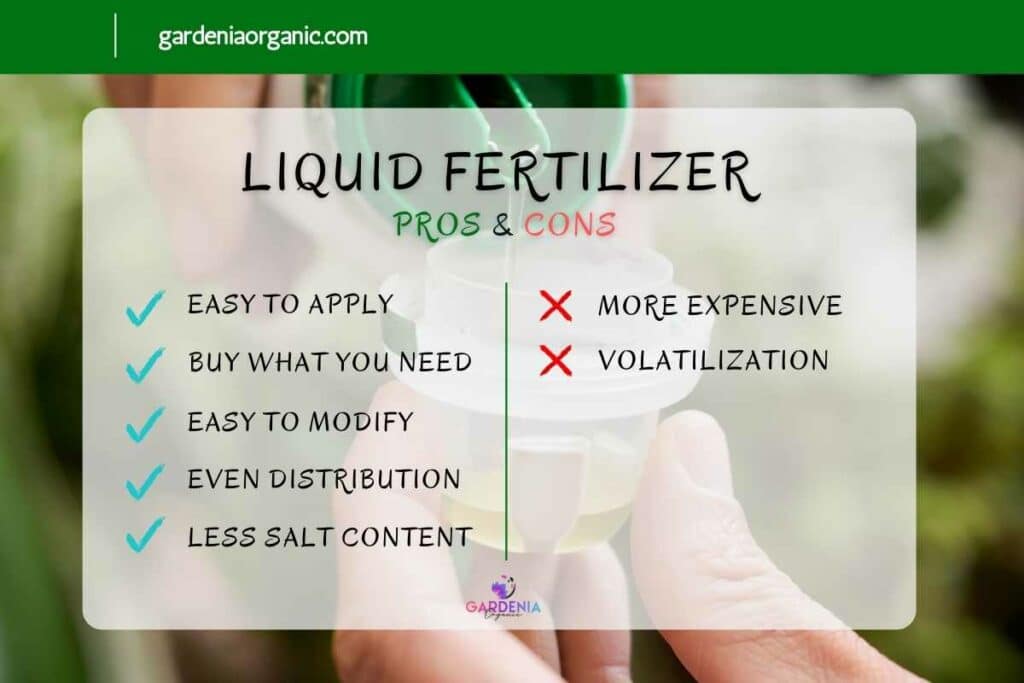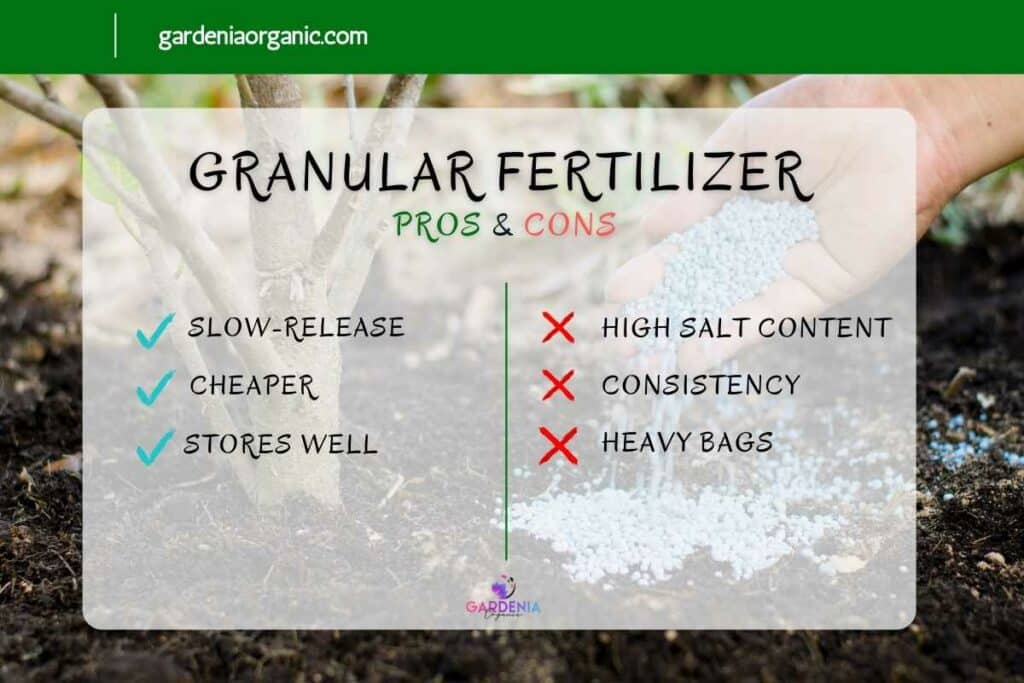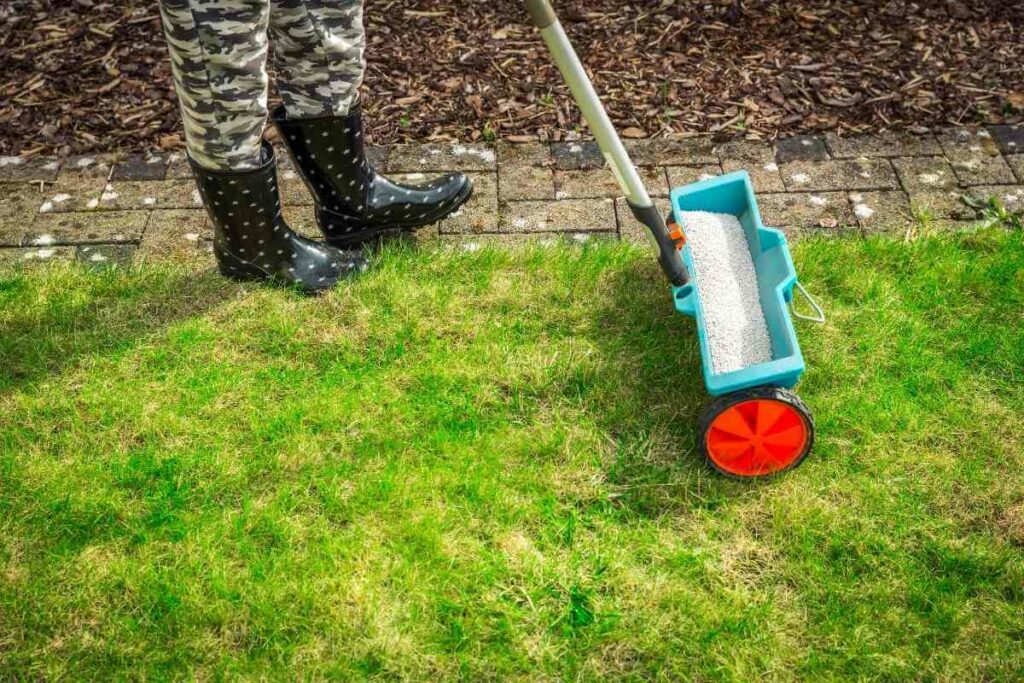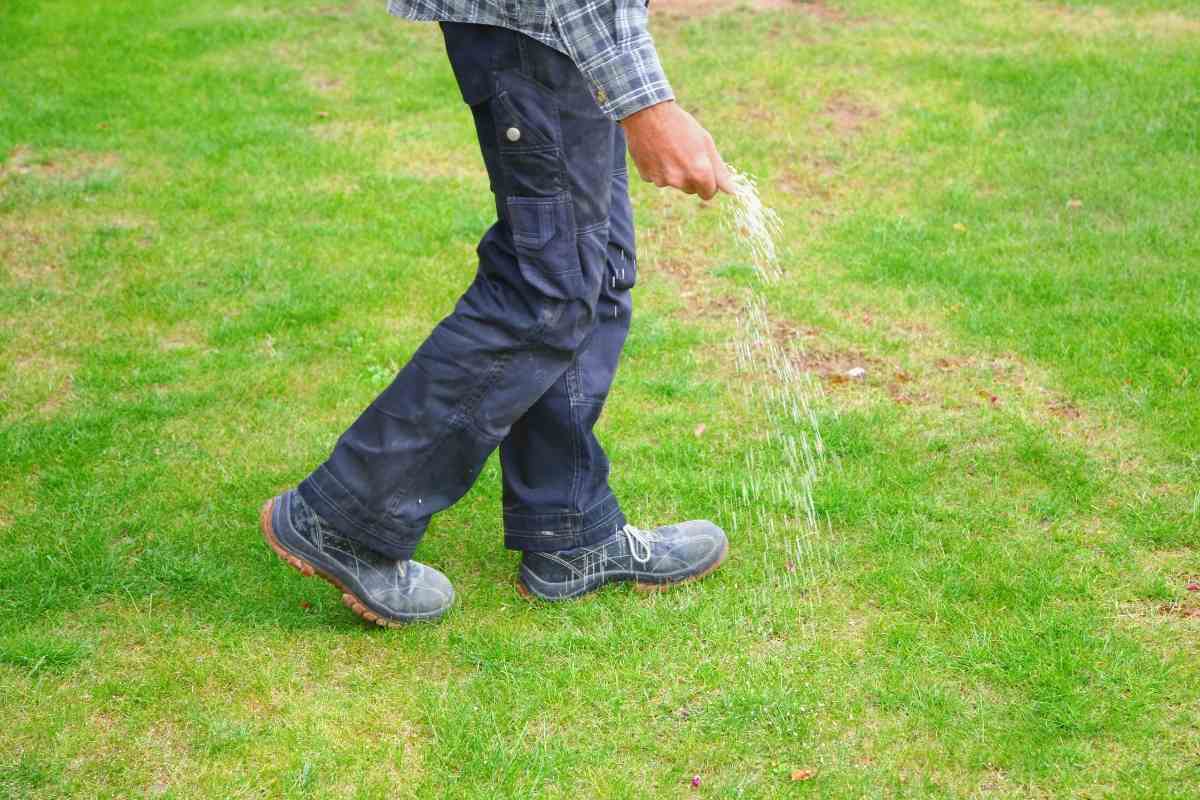Many homeowners are seeking better ways to grow greener, healthier grass that is attractive and easy to maintain.
To most people, this can be overwhelming but by using proper fertilizer, you can have a beautiful lawn throughout the year.
Fertilizer replenishes nutrients vital to the soil and ensures your lawn is both appealing and manageable.
However, you need to ensure that appropriate fertilizer is used at different intervals of the year as recommended.
Does Fertilizer Help Grass Grow?
Naturally, and depending on the nature of your lawn, its soil loses essential nutrients with time.
Therefore, apart from regular mowing and watering, you will need to use fertilizer to maintain a healthy lawn.
The fertilizer replenishes the soil nutrients lost over time to ensure a lush lawn.
Just like your body needs food, the soil requires potassium, nitrogen, and phosphorus, which can be supplemented using organic or inorganic fertilizers.
When you apply appropriate fertilizer as recommended, your lawn will remain green throughout the year.

It is easy to identify a healthy lawn by observing the color of the grass threads and the grass spread.
If you have watered the grass correctly and still the grass is not lush and green, then the best option is fertilizing your yard.
Fertilizing increases chlorophyll levels, thus strengthening the leaves, stems, and roots, making your lawn look stunning and healthy.
It is important to note that your lawn may require a different fertilizer from that recommended by your friend.
It is because different soils have varying chemical compositions.
Therefore, during the application, follow the manufacturer’s instructions carefully.
If Possible – You can have your soil tested so that a soil expert can recommend the appropriate fertilizer for your lawn.
What Slows The Growth Of Grass?
It is not unusual for your lawn to have unhealthy and stunted grass.
The soil in the yard needs the right conditions to allow the grass to uptake the appropriate nutrients.
Some factors that may affect the health of the lawn include diseases and pests.
These can be controlled by applying proper chemicals and maintaining good husbandry.
On the other hand, your lawn may experience stunted grass growth if it is not watered properly. Watering your grass correctly is paramount to achieving a healthy green lawn.
However, too much watering is unhealthy and should be avoided.
In This Case – You can use timed sprinklers or be attentive to the watering consistency. The slow growth of the grass on your lawn can reflect a lack of essential elements such as nitrogen and phosphorus.
Also, the same can be noted when the fertilizer is used inconsistently with the manufacturer’s recommendation.
Importantly, you should ensure that the correct formulation is employed since every grass type behaves differently depending on the fertilizer applied.
A landscaping professional will assist you in determining the amount and frequency of application.
What Fertilizer Is Best For Growing Grass?
There is a sensational feeling when walking bare feet on a healthy, lush lawn.
Also, a beautiful lawn makes your homestead look appealing and welcoming.
Using the best fertilizer on your lawn will ensure the grass remains healthy throughout the year.

Also, it reduces the overwhelming task of managing weeds and pests.
However, choosing the correct fertilizer for your lawn is as important as your diet for that ornamental look.
Since many fertilizers are available on the market, choosing the best that suits your lawn is critical.
Therefore, it will be vital to understand your soil’s nature and composition.
Nitrogen, phosphorus, and potassium (N,P,K) are the primary nutrients that enhance proper growth for grass and plants in general.
To decide the ratio of the elements needed, you will have to conduct a soil test or consult an expert.

Inorganic or synthetic fertilizers work rapidly to provide the soil with the required nutrients.
Conversely, organic fertilizers have a gradual effect but can be very useful to your lawn over time:
- Depending on the soil composition, NPK fertilizers will immediately affect the growth of the grass on your lawn. You just need to determine the elements lacking and purchase the fertilizer that suits your needs.
- To have a healthy lawn free from chemicals, you can employ biofertilizers that contain microorganisms vital for grass growth.
- Also, you can use animal or plant-based organic fertilizers to improve the soil texture and composition.
When Should You Fertilize Your Lawn?
Climate, among other underlying conditions in the soil, influence the time of fertilizing your lawn.
If applied at the wrong time, the fertilizer may harm your lawn. Different seasons will dictate when and how to use fertilizers.

It is advisable to fertilize the grass during spring when the lawn starts depicting signs of lush growth. In most places, it’s around April when blossoming starts.
The nutrients gathered from spring will be enough to feed your grass until late summer, when you will be required to top up the fertilizer. It will be enough to last through fall.
However, at the end of fall, it will be paramount to apply additional fertilizer to maintain your lawn’s green and appealing color.
This fertilization is vital since the grass will use throughout winter.
What Are The Disadvantages Of Over-Fertilizing Grass?

Although fertilizing your lawn is essential, you should follow the manufacturer’s instructions and recommendations from the experts to ensure that over-fertilizing the grass is avoided.
For Instance – If you use a fertilizer with high nitrogen content compared to what the grass needs, the grass plant will grow big, and the roots may not be able to support the weight.
Although overuse of potassium and phosphorus do not hurt your lawn, they cause contamination.
Thus, there are regulations and laws on their usage in specific regions.
Final Thoughts
Often it is not easy keeping your lawn as clean and healthy as it is supposed to be since it can be time-consuming.
However, simple procedures and activities can go a long way in ensuring your lawn remains green throughout the year.
Using fertilizers is among the easiest ways of improving the soil quality for a healthy lawn. They are easy to use, and your plants will have that lush green appealing look.
Nevertheless, it will be essential to understand what your soil lacks to apply the correct fertilizer.
